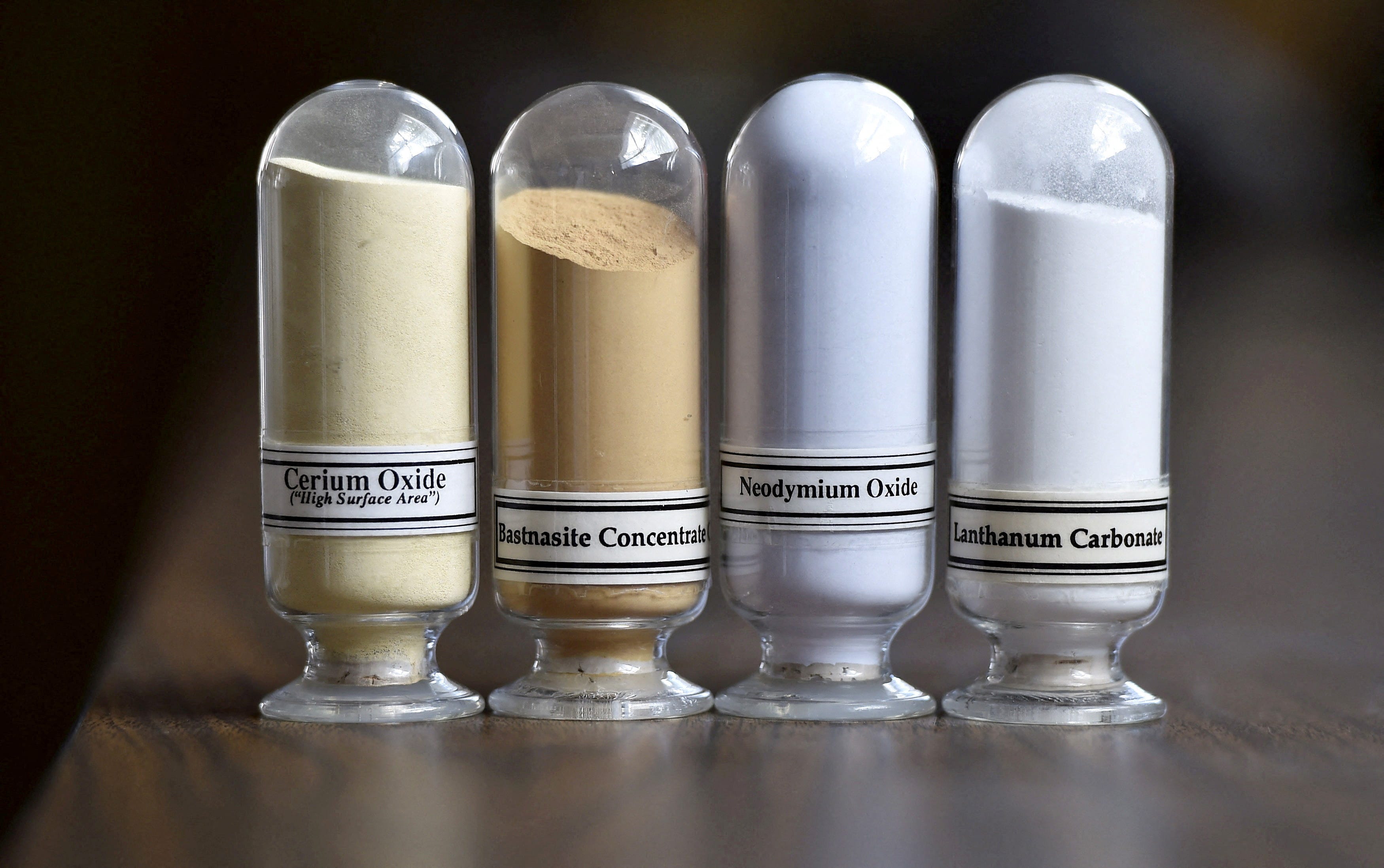
David Becker/REUTERS
China has a significant card to play in its trade negotiations with the US, which could not only put the Trump administration in a bind but also impact a wide range of consumer goods.
Rare earth minerals, namely scandium, yttrium, and 15 types of lanthanides, usually sit unnoticed at the bottom of the periodic table. But experts in rare earths have told Business Insider that a shortage of these minerals — which mainly come from China — could induce a shortage in everything from aircraft parts to TV remotes.
“It’s not industry agnostic because rare earths are used in everything from TVs and laptops and phones to cancer treatments and MRI scanners to automotives to defense,” said Gracelin Baskaran, director of the Critical Minerals Security Program at the Center for Strategic and International Studies.
“Especially as a bedrock to the automotive industry, it is really critical because our automotive manufacturing industry was getting to a point where it had to halt operations and close manufacturing plants without access to these rare earths,” Baskaran added.
The importance of critical minerals came into focus when China cut off its supply to the US after Trump imposed tariffs, as high as 245% for some goods, on the manufacturing hub in a trade war that escalated between February and May.
The two countries have since de-escalated tensions through trade talks after Trump agreed to lower duties on China to 30% for 90 days starting from May 14. After the latest trade talks in London in mid-June, China has agreed to reopen export channels of its critical minerals to the US — at least for now.
“China built up its industry in a cheap and not necessarily ecologically refined manner, and the US said, ‘That’s very inexpensive, so we do not need to have this kind of industry in our country,'” Laura Lewis, professor of chemical engineering at the Northwestern University College of Engineering, saud. “And that was the case for many years.”
Bilateral relations with China remain fragile
According to data from the 2024 US Geological Survey, 70% of critical mineral imports to the US came from China, followed by 13% from Malaysia. China also processes nearly 90% of the world’s rare earth minerals, according to the International Energy Agency.
Though the Chinese Embassy in Washington, DC, did not directly confirm how long rare earth licenses will remain issued to US manufacturers, a spokesperson told BI in a statement that “China has reviewed and approved a certain number of export license applications for rare-earth-related items.”
“Rare-earth-related items have dual-use attributes, with both military and civilian purposes, imposing export controls on such items is in line with international practices,” the spokesperson added.
Drew DeLong, lead in geopolitical dynamics practice at Kearney, a global strategy and management consulting firm, told BI that manufacturers are going to stockpile as much rare earth material as possible during the brief reprieve in US-China relations, in anticipation of more supply chain disruptions.
DeLong said that by August, when the tariff suspension expires, the US-China relation would reach a critical decision point where it “must either coalesce or collapse.”
“Markets now wait to see whether Beijing actually resumes outbound shipments, and whether Washington delivers on its part of the rollback, ” DeLong added. “There already appears to be hedging on trade tensions flaring up again.”
America may need to work with what it has
The US once had a single operating rare earth mine in Mountain Pass, California, but it went bankrupt in 2015. Molycorp, its operator, filed for bankruptcy protection due to slumping rare earth prices and ballooning costs.
Meanwhile, China has spent decades building its capacity to process rare earths. Other countries, like Japan, have diversified where they get their rare earth metals to avoid relying on China.
Lewis, of Northwestern University, told BI that the US not only has a long way to go, but it may simply lack certain types of metals, even if it could extract others.
Lewis said that the US lacks a category of heavy rare earths necessary for magnets to endure hot environments like motors.
“We’re going to have to work with our allies and nature to get what we need,” said Lewis, “Because I cannot possibly imagine that the investment it would take to get our rare minerals from asteroids is going to be less than what we can already achieve on earth through recycling and a thoughtful use of resources.”
“The philosophy in Silicon Valley is just throw enough time and money at it, and you’ll get it and fast, but nothing that we can do to get the rare earth industry healthy is going to happen fast,” Lewis added. “Nature’s smarter than we are.”
The post Rare earth minerals are the biggest card China can play in its negotiations with Trump appeared first on Business Insider.




